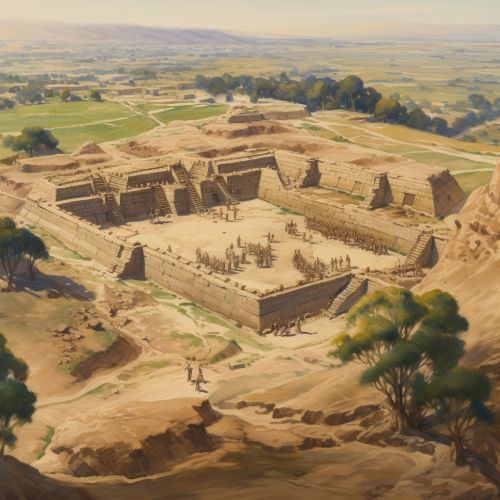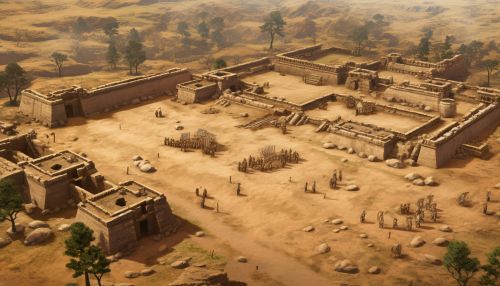Hinduism
Origins and History
Hinduism is one of the world's oldest religions, with its origins tracing back to the Indus Valley around 3300–1300 BCE. The religious practices of the Indus Valley people have been linked to the later Hindu tradition, but the exact relationship remains subject to scholarly debate.


The development of Hinduism was influenced by many cultural shifts over thousands of years. The Vedic period, from 1500–500 BCE, marked the introduction of the Vedas, the oldest scriptures of Hinduism, composed in Vedic Sanskrit. These texts contain hymns, incantations, and rituals from ancient India.
Beliefs and Practices
Hinduism is a complex and diverse religion with no single founder or central religious authority. It encompasses a wide array of beliefs and practices, but several fundamental concepts are shared by most Hindus.
Dharma
Dharma is a key concept with multiple meanings in Indian religions like Hinduism, Buddhism, Jainism, and Sikhism. In the context of Hinduism, dharma signifies behaviors that are considered to be in accord with the order that makes life and the universe possible. It includes duties, rights, laws, conduct, virtues and the right way of living.
Karma, Samsara, and Moksha
Hindus believe in karma, the law of cause and effect, where the intent and actions of an individual influence their future. This process is part of samsara, the cycle of birth, death, and rebirth. Moksha, liberation from this cycle, is the ultimate spiritual goal of Hinduism.
Deities
Hinduism is a henotheistic religion, meaning followers may worship one god while not denying the existence of other gods. The most widely worshipped Hindu deities are Brahma, the creator, Vishnu, the preserver, and Shiva, the destroyer.
Sacred Texts
Hindu literature can be divided into two categories: Śruti – that which is heard (revealed) and Smriti – that which is remembered (traditional). The Vedas and the Upanishads are classified as Śruti literature, while the Mahabharata and the Puranas are examples of Smriti.
Vedas
The Vedas are a large body of religious texts composed in Vedic Sanskrit. They are considered the most sacred scriptures of Hinduism.
Upanishads
The Upanishads are a collection of texts that contain some of the central philosophical concepts of Hinduism. They are considered the end part of the Vedas, also known as Vedanta (the end of the Vedas).
Mahabharata and Ramayana
The Mahabharata and the Ramayana are two major Sanskrit epics of ancient India. They have had a significant influence on Hindu philosophy and social conduct.
Rituals and Worship
Hindu rituals are a key part of the religion's practice. These rituals, known as samskaras, mark major life events and transitions. Hindu worship, or puja, involves images (murtis), prayers (mantras), and diagrams of the universe (yantras).
Society and Culture
Hinduism has had a profound impact on India's culture and society. The caste system, a social hierarchy in India, has its roots in Hindu theories of social organization.
Modern Developments
In the 19th and early 20th centuries, Hinduism underwent a process of modernization in response to British colonial rule. This period saw the emergence of movements like the Arya Samaj and the Brahmo Samaj, which sought to reform various aspects of Hindu thought and practice.
